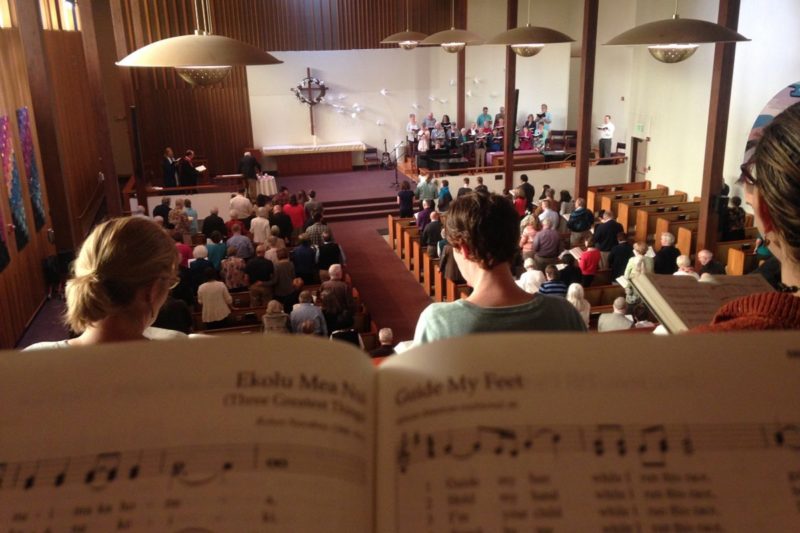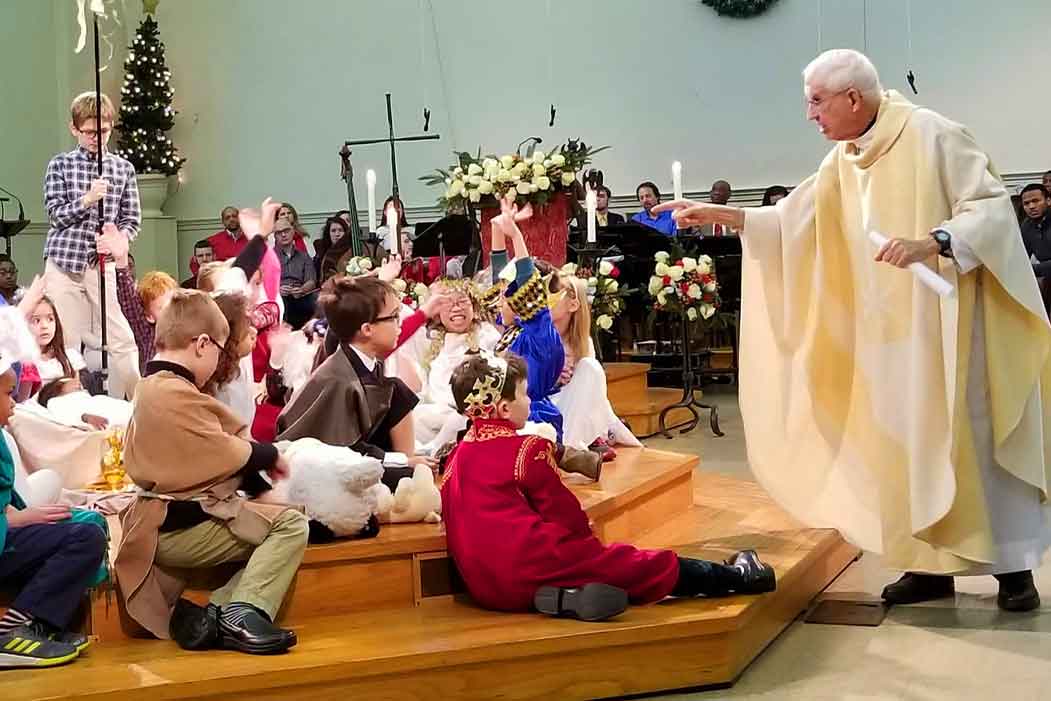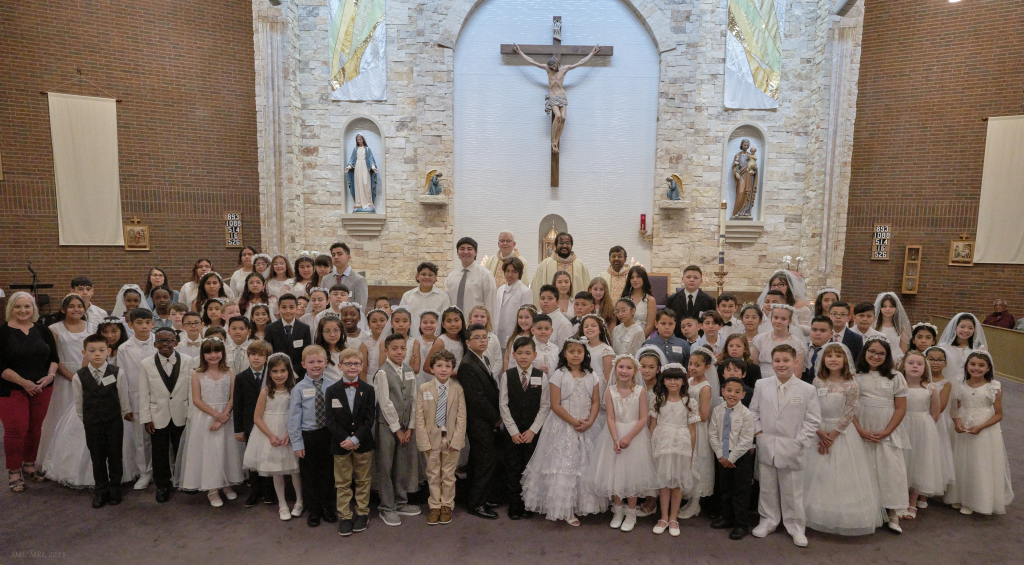Church And Education - Empowering Communities Through Knowledge
In an ever-changing world, educationstands as the cornerstone of progress, enlightenment, and empowerment. Churches, historically known as centers of faith and worship, have also emerged as vital hubs for education and community development. This article delves into the significant role churches play in shaping educational landscapes, highlighting the impact of church and educationprojects and society at large.
The Intersection Of Faith And Knowledge
In the heart of every thriving community lies a place where faith converges with knowledge, giving rise to a transformative synergy that has the power to shape minds and illuminate souls. Churches, revered as sanctuaries of spiritual growth, have not only embraced this intersection of faith and knowledge but have also harnessed its profound potential.
Understanding The Transformative Power
Churches, across diverse cultures and traditions, have long recognized the profound impact education can have on individuals and communities. The harmonious blend of faith and knowledge creates a nurturing environment, akin to a fertile soil where the seeds of intellectual, moral, and spiritual growth find nourishment. In this sacred space, individuals are not merely recipients of information; they are active participants in a journey of enlightenment.
Fostering Curiosity And Passion For Learning
Within the hallowed halls of these religious institutions, educational initiatives sprout like tender shoots, reaching out to embrace individuals of all ages and backgrounds. From the innocence of childhood to the wisdom of adulthood, churches cater to diverse age groups, fostering a sense of curiosity and a profound passion for learning. In these environments, knowledge is not a static entity but a dynamic force, inspiring minds to question, explore, and delve into the depths of understanding.
Embracing Lifelong Learning
The intersection of faith and knowledge encourages a spirit of lifelong learning. It recognizes that the pursuit of knowledge is not confined to a specific age or phase of life but is a continuous, ever-evolving journey. Churches, as bastions of wisdom, provide spaces where individuals, regardless of their life stage, can engage in intellectual pursuits, nurturing a culture where learning is not just a task but a cherished way of life.
Incorporating Moral And Spiritual Growth
What sets apart the education offered within the walls of churches is its holistic approach. It goes beyond the realms of textbooks and classrooms, incorporating the values of morality and spiritualityinto the educational fabric.
Here, individuals not only gain knowledge about the world but also learn essential life skills, empathy, compassion, and the significance of moral integrity. The intersection of faith and knowledge ensures that education is not just a means to an end but a transformative experience that shapes character and instills a deep sense of purpose.
What Does The Bible Say About Education? Unveiling The Wisdom Within Scripture
In the sacred pages of the Bible, the term "education" may not be explicitly mentioned, but the profound wisdom it imparts echoes throughout its verses. While the word "school" is scarcely found, the essence of education and the pursuit of knowledge are intricately woven into the fabric of biblical teachings.
The Pursuit of Wisdom:The Bible places a significant emphasis on wisdom, portraying it as a precious treasure to be sought after diligently. Proverbs 2:6 (NIV) states, "For the Lord gives wisdom; from his mouth come knowledge and understanding." This verse underscores the divine origin of wisdom and highlights the importance of acquiring knowledge and understanding, essential components of any meaningful education.
Teaching and Learning:Throughout the Bible, various passages emphasize the role of teaching and learning. Deuteronomy 6:6-7 (NIV) instructs, "These commandments that I give you today are to be on your hearts. Impress them on your children. Talk about them when you sit at home and when you walk along the road, when you lie down and when you get up." This verse emphasizes the continuous nature of learning and the responsibility to pass down knowledge to the younger generations.
Understanding God's Creation:The Bible marvels at the intricate design of the natural world, encouraging believers to study and understand God's creation. Psalm 19:1 (NIV) declares, "The heavens declare the glory of God; the skies proclaim the work of his hands." This verse inspires a sense of awe and curiosity, fostering an appreciation for scientific inquiry and exploration.
Discernment and Discipleship:Education, according to biblical principles, involves not only acquiring knowledge but also developing discernment and moral clarity. Philippians 1:9-10 (NIV) states, "And this is my prayer: that your love may abound more and more in knowledge and depth of insight, so that you may be able to discern what is best and may be pure and blameless for the day of Christ." This verse underscores the importance of education in cultivating virtues such as discernment and purity.
In essence, while specific references to formal education are limited, the Bible's teachings encompass a holistic view of education. It embraces the pursuit of wisdom, the transmission of knowledge, understanding God's creation, and nurturing discernment and moral clarity. The Bible's wisdom guides believers in their quest for knowledge, providing timeless principles that resonate in educational pursuits.
For a deeper exploration of the Bible's teachings and their relevance to teenagers, we invite you to visit Fellowship Baptist Church's Bible for Teenagers.
Forms Of Christian Education - Nurturing Minds, Enriching Souls
Christian education, deeply rooted in the historical tapestry of the Western world, has played a pivotal role in shaping societies and nurturing intellectual, moral, and spiritual growth.
From its inception, the Christian church recognized the importance of education, both as a means to defend its faith against external challenges and to pass down its teachings to subsequent generations.
This rich legacy of education within the Christian tradition has evolved over centuries, taking on diverse forms to meet the needs of different communities and cultures.
- Apologetics and Critical Dialogue:The early Christian theologians, from St. Justin Martyr in the 2nd century to modern thinkers like Paul Tillich in the 20th century, engaged in apologetics—a form of intellectual defense of the faith. This tradition fostered critical dialogue between the Christian community, the educated world, and other religions. The dialogue, encouraged by the Second Vatican Council, Pope John Paul II, and the ecumenical movement, became a cornerstone of Christian education, promoting understanding and tolerance.
- Cathedral Schools and Higher Learning Centers:In the medieval era, cathedral schools emerged, providing basic education in Latin grammar and Christian doctrine to clergy. Over time, these schools transformed into centers of higher learning, becoming hubs of intellectual pursuit. Religious orders, cathedrals, monasteries, convents, and churches contributed significantly to the advancement of education, fostering a culture of knowledge and enlightenment.
- Universities and Academic Excellence:The concept of universities took shape in the 12th century, becoming dedicated hubs for advanced learning. These institutions, rooted in Christian traditions, provided instruction in liberal arts, theology, law, and medicine. The great theologians of the time, such as St. Thomas Aquinas, were associated with these universities. Over centuries, universities spread from Europe to other continents, shaping the intellectual landscape of the world.
- Missionary Work and Cultural Exchange:Christian education played a pivotal role in missionary work, establishing educational foundations for evangelization and cultural exchange. In regions like Latin America, Roman Catholic universities were founded early, shaping the educational landscape. Missionary efforts in Asia and Africa intensified Christian education, influencing societies and fostering cross-cultural understanding.
- Denominational Contributions in North America:In North America, various Christian denominations took the lead in creating educational institutions. Churches established universities and colleges, emphasizing denominational values in education. Institutions like Harvard University, Yale University, and the University of Notre Dame were founded with Christian principles at their core, shaping generations of scholars and leaders.
- Sunday Schools and Confirmation Instruction:Within congregations, Sunday schools became universal, providing foundational religious education to children. Confirmation instruction, specialized and tailored to the needs of the young, prepared them for acknowledgment of Christian beliefs, sacraments, and ethical principles. These forms of education reinforced the Christian ethos within communities.
Church Projects Transforming Education - A Vision For Inclusive Growth
In the relentless pursuit of a brighter, more equitable future, churches across the globe are championing transformative educational initiatives. These projects, rooted in compassion and driven by a commitment to inclusivity, are reshaping the educational landscape. Through innovative approaches, churches are fostering not only knowledge but also understanding, empathy, and opportunities for all.
- Building Educational Institutions:Churches are at the forefront of ambitious endeavors, establishing educational institutions that stand as beacons of knowledge and enlightenment. By constructing schools, colleges, and vocational training centers, these projects create more than classrooms—they build bridges to a prosperous future. These institutions not only impart quality education but also play a pivotal role in community development. By nurturing young minds and providing comprehensive education, churches empower individuals to break barriers, fostering a generation capable of leading the way toward progress. Moreover, these educational institutions generate employment opportunities, stimulating economic growth and enhancing the overall well-being of the community.
- Digital Literacy Initiatives:In an era dominated by technology, churches have recognized the vital importance of digital literacy. Digital literacy initiatives, spearheaded by churches, are equipping students and adults alike with essential digital skills. Cutting-edge computer labs and technology workshops are becoming hubs of innovation, where individuals learn to navigate the digital landscape with confidence. By providing training in computer proficiency, software utilization, and online safety, these initiatives ensure that community members are not just bystanders but active participants in the modern job market. In essence, churches are bridging the digital divide, empowering individuals to thrive in an increasingly interconnected world.
- Promoting Inclusivity:One of the most remarkable facets of church projects is their unwavering commitment to inclusive education. Recognizing the unique needs of children with disabilities, churches are creating learning environments that are accessible, empathetic, and supportive. Specialized educational programs are designed to cater to diverse learning styles, ensuring that every child, regardless of their abilities, can access quality education. In promoting inclusivity, churches are not just transforming educational paradigms; they are nurturing empathy and understanding among community members. By fostering an environment where differences are embraced and celebrated, these initiatives are sowing the seeds of a truly inclusive society.
Church And Education - FAQs
What Is The Link Between Religion And Education?
Religion and education are deeply intertwined, with their relationship manifesting in various ways across different cultures and societies. Here are some key aspects of the link between religion and education:
- Moral and Ethical Guidance:Many religions provide moral and ethical guidelines that influence the values and conduct of individuals. Religious education often imparts these values to young learners, shaping their character and guiding their behavior.
- Cultural Preservation:Religious educationoften involves teachings about cultural traditions, rituals, and historical events associated with a particular faith. This helps preserve cultural heritage and pass it on to future generations.
- Social Cohesion:Religious education can foster a sense of belonging and community among believers. It provides a platform for individuals to come together, share common beliefs, and participate in communal activities, strengthening social bonds.
- Critical Thinking and Ethics:Religious education, particularly in the study of theology and philosophy, encourages critical thinking and philosophical reflection. It prompts individuals to ponder existential questions, ethical dilemmas, and the nature of reality, enriching their intellectual capacities.
Why The Church Must Teach?
The church, as a religious institution, has several important reasons to engage in teaching:
- Spiritual Guidance:The church serves as a spiritual guide, imparting religious teachings, moral values, and ethical principles to its members. Teaching within the church context helps individuals understand their faith and live according to its tenets.
- Community Building:Church teaching fosters a sense of community among believers. Through religious education, individuals come together to learn, discuss, and share their faith experiences, strengthening the communal bond within the church.
- Preservation of Faith:Teaching within the church is essential for preserving and passing on religious traditions, rituals, scriptures, and cultural practices to future generations. It ensures the continuity of faith and the preservation of religious heritage.
- Service and Compassion:Church teaching often emphasizes the importance of service to others and compassion for the less fortunate. Through educational initiatives, the church equips individuals with knowledge and skills to serve their communities, promoting social justice and empathy.
What Is The Connection Between Spirituality And Education?
The connection between spirituality and education is profound and transformative, influencing both personal growth and societal well-being. Here are some key aspects of this connection:
- Holistic Development:Spiritual education emphasizes the holistic development of individuals, addressing not only intellectual but also emotional, social, and moral dimensions. It nurtures empathy, compassion, and a sense of purpose, enriching the overall educational experience.
- Values and Ethics:Spiritual education instills moral values, ethics, and a sense of responsibility toward others. It encourages individuals to make ethical choices, fostering a positive and ethical learning environment.
- Meaning and Purpose:Spiritual education often explores existential questions related to meaning, purpose, and the nature of reality. It provides a framework for individuals to explore their beliefs, values, and the deeper aspects of life, enhancing their understanding of the world and their role in it.
- Coping and Resilience:Spiritual education can provide individuals with coping mechanisms and a sense of resilience during challenging times. It offers comfort, hope, and a sense of belonging, helping individuals navigate difficult situations with inner strength and faith.
Conclusion
In conclusion, the symbiotic relationship between churches and education is a testament to the power of collective effort in nurturing educated, enlightened, and empowered societies. Through church projects, communities gain access to education, transforming lives and fostering a brighter future. By bridging faith and knowledge, churches continue to inspire generations, leaving an indelible mark on the educational landscape.



